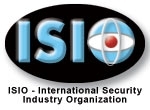
Handling the mentally and emotionally challenged for Covid19
We do not intend on offending people that have abnormal issues that could occur to any normal person in life. For example, any person that has a compromised health issue or is over the age of 65+ will have many fears and react abnormally contradicting their normal behaviour. Even their friends and family may label them as going insane because of misinterpreting the reasons for the behaviour seem or heard.
We must keep in mind that there are already people living in society that live daily in hell with mental and emotional issues that hopefully are using the necessary remedies available to them. This could be that there is a chemical imbalance and they need to take medication to limit or mitigate their emotional turmoil. People are on anti-anxiety, depression or other medication to stop them harming themselves or others.
Yes, there are also crazed deviants that are abusers, rapists, and others that have not been identified roaming the streets taking advantage of the situation. There may be psychological issues that stimulate crime, e.g., such as kleptomaniacs that may be triggered by the covid19 situation. The point is that, there are criminal methods could be a result of a psychological issues.
Situation
No matter where the practitioners on the ground, could be confronted with such situation of needing to manage or handle emotional or mentally challenged people. There would be hotspots where this situation would be more frequently occurring such as rehabilitation centres or asylums, to which, we would hope that the practitioners would be trained to handle these issues.
Implications
This calls for practitioners on the ground now must be even more socially aware to comprehend that some people (regardless if they are normal, emotional or mentally challenged) may be over-reacting and becoming highly sensitive and must be understood before physical intervention is used.
When the situation is misunderstood, then the practitioners are inviting collateral damage by their reactions. The level of collateral damage will depend on their level of situational awareness and the way that they react to the incidents.
We must consider that people are now perhaps ‘weaponized’ with covid19 and therefore, precautions must be considered. Thinking perhaps using this word so as not to cause panic, however, the security practitioner should be just aware and protected with the gear just as a nurse, doctor or a surgeon. This could be a layered approach for protection gear in the meaning that front-line officers at the reception in hospitals should be fully secured and the oversight manager that may be sitting in their office not having to wear anything. Perhaps, a pharmacy may only require officers with masks and gloves, but eye-goggles would be advised as sick people could break quarantine to fetch medicines.
Protocol consideration
As illustrated above, there are issues whereas one may misinterpret others that are acting nervously because the stress levels due to the convid19 which is normal and may not be because of emotional, mental challenges, deceptive or deviant behaviour. But, let the practitioner must be able to recognize when a person is in a mentally disordered state of mind.
There are issues whereas one may misinterpret others that are acting nervously because the stress levels due to the convid19 which is normal and may not be because of deceptive or deviant behaviour.
Most importantly, and bias towards any size, colour, religion of a person could be misinterpreted which could add fuel to the fire of violent behaviour. A person that is bias will naturally display their emotions in their tone of voice and body language which will instinctively obtain a negative reaction by another person. This could also lead to a person misinterpreting or being misunderstood by another culture and providing an unreliable reading to the practitioner. This calls for practitioners to be properly trained with lie, deception detection using critical situational interviewing taking cultural behaviour into account.
For handling conflict or violent behaviour, the practitioner must be culturally aware so that they do not over-react or make decisions based on bias. A person that is bias will naturally display their emotions in their tone of voice and body language which will instinctively obtain a negative reaction by another person. This could also lead to a person misinterpreting or being misunderstood by another culture and providing an unreliable reading to the practitioner. This calls for practitioners to be properly trained with lie, deception detection using critical situational interviewing taking cultural behaviour into account.
Protocols for Action
The Person-of-interest
Rest of the document To identify and interact with a person-of-interest is available to ISIO Members and HIM e-Connect Subscribers
